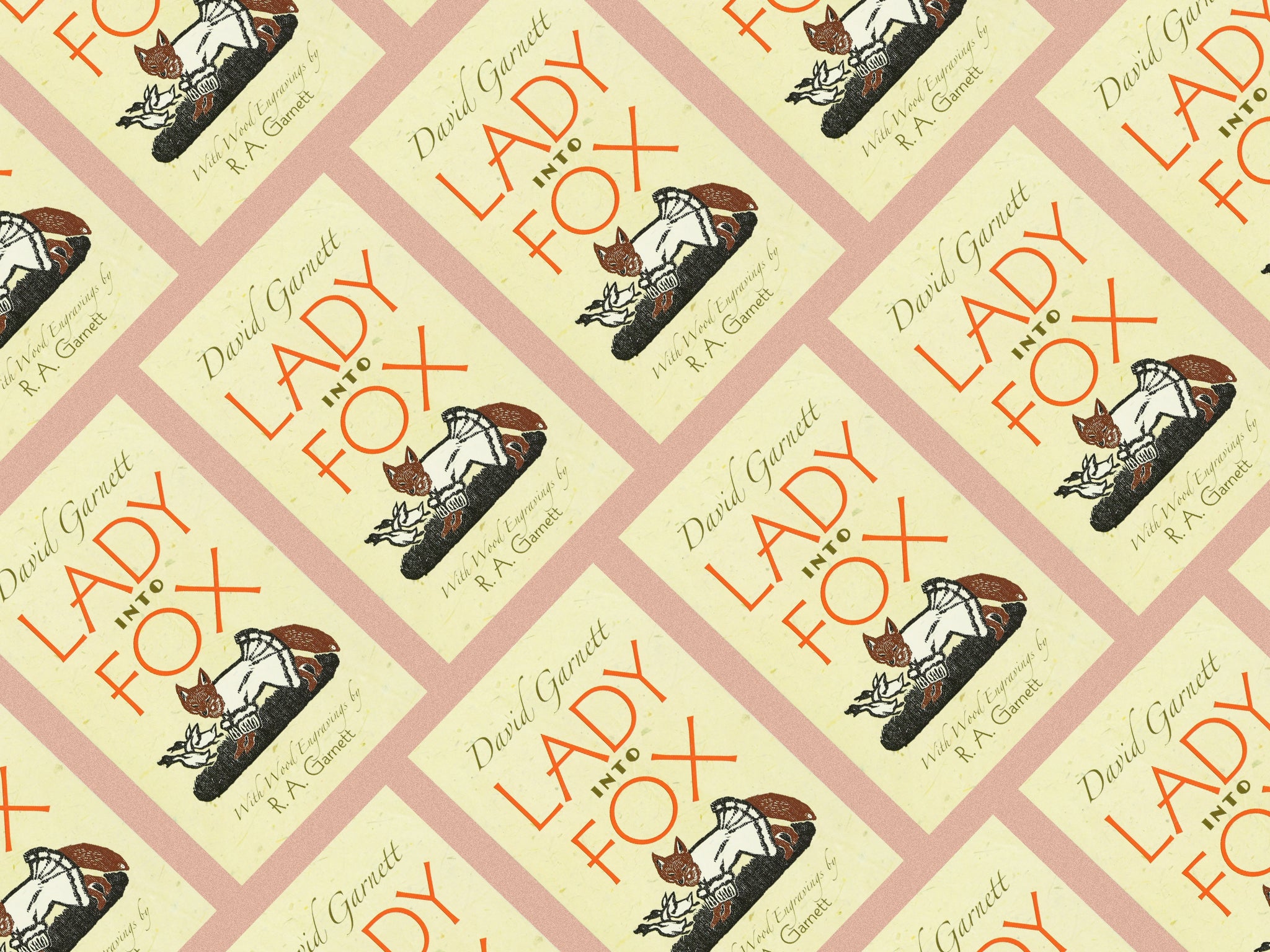Book of a lifetime: Lady into Fox by David Garnett
From The Independent archive: Andrew Barrow on a sharp-toothed tale about love and death

Many moons ago, I spotted a fourth impression of this short, sharp-toothed novel in a Gloucester Road charity shop. I had often heard talk of Lady into Fox, first published in 1922, only 91 pages long and consisting of just the one chapter, but had never before laid eyes on it. I snapped up the slim volume immediately, feasted on its wood engravings and demolished it during a train trip to the south coast. It pleased me in particular that a previous owner of my copy, a not inappropriately named Janet Leeper, had pencilled her name inside and added the date 5 November 1945, which just happens to be the day I was born.
The story of Lady into Fox is gripping and terrible. Out walking in Oxfordshire woodland, Mr Tebrick suddenly finds that his beautiful, shy, young wife Sylvia has turned into a fox. At first the change is purely physical. Her loving husband carries her home hidden under his top-coat, dismisses his servants and shoots dead the naturally over-excited family dogs. All goes well for a while. The Tebricks love each other just as much and sleep in the same bed. Mrs Tebrick eats the same food as she did in the old days – a lightly boiled egg and a slice of ham – and, for propriety’s sake, remains in an upright position and dressing-gowned. Then the trouble starts.
Mrs Tebrick starts eyeing a caged pet dove and licking her chops. Suddenly she is running on all fours, scaring some ducks on a pond and cutting “a thousand pretty capers” on seeing the commotion she has caused. All her inhibitions have gone. Soon she is crunching up chicken bones under the dining-room table, slaughtering a pet rabbit and trying to escape. During this second transformation, her loving husband becomes increasingly distraught. He blames God, feels suicidal, tears up a photograph of his wife as she once was, hits the bottle – and finally gives his beloved her freedom. So far, so bad.
Terrified that his wife will be killed by local foxhounds, Tebrick now pulls a local huntsman off his horse, gets branded crazy by his neighbours and starts addressing any fox he runs into: “Sylvia, Sylvia, is it you?” Then something wonderful happens. Early one morning, Mr Tebrick finds his wife on the doorstep, longing to show off her litter of fox cubs. Grinning with pride and happiness, Mrs Tebrick kisses her husband, while he quickly becomes besotted by his new extended family and steals pigeons’ eggs from a nest to feed them.
What I love best about this story is its straight-faced, ever so slightly sly prose. Looking for possible clues to Mrs Tebrick’s original transformation, the narrator tells us that there was nothing remotely foxy or vixenish about her as a girl. Then, without missing a beat, he pretends to reinforce this message with the information that her hair was dark, with a shade of red. I will not spoil the story by revealing how it ends. The author uses humour, fantasy, allegory and realism to explore pain, passion, conjugal fidelity, love, death and the whole damn thing.



Join our commenting forum
Join thought-provoking conversations, follow other Independent readers and see their replies
Comments